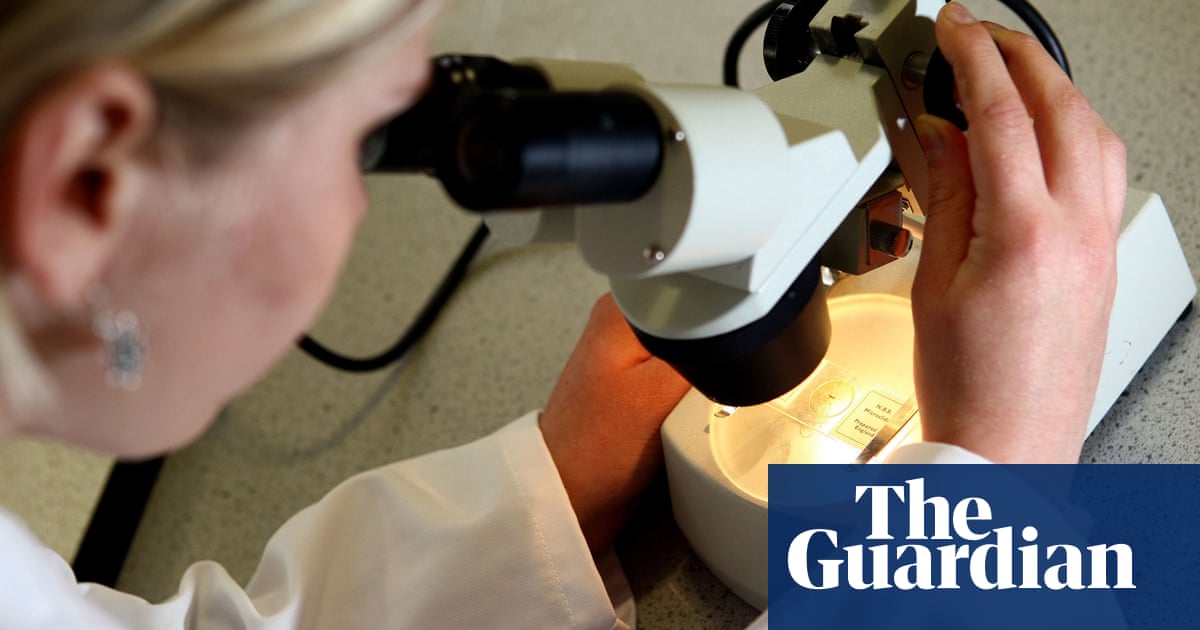Children are among the NHS patients being denied access to revolutionary cancer drugs as a result of red tape and extra costs caused byBrexit, according to a report leaked to the Guardian.Two examples illustrate how the UK’s departure from the EU is derailing UK cancer research, leaving patients in limbo and unable to access pioneering treatments.
eSMART is a trialof new targeted drugs and chemotherapy for children, teenagers and young adults whose cancer has returned or treatment has stopped working.
The cost of importing medicines for the study – a collaboration between Paris and Birmingham – almost quadrupled from €52,000 to €205,000 (£175,000) because of Brexit.
A range of factors were cited, including the expense of additional requirements in the paperwork for packaging, licensing and importation.
With the UK no longer a member of the EU, scientists in Birmingham also had to spend time arranging for a second qualified person (QP) to certify the drugs so that arms of the trial could open in Britain.
This caused major difficulties and delays, and companies sponsoring the trial were not prepared to release the relevant documents to greenlight the extra QP.
“New arms of the trial could open in the EU but not the UK, so patients across Europe have been able to access treatment as part of this trial, while patients in the UK lost out,” the report found.
Children in the UK will finally be able to join the trial this year, but only because a British charity,CancerResearch UK, provided £92,000 to help plug the funding gap.
The eSMART trial lead in the UK, Dr Lynley Marshall, told the Guardian that Brexit had made it harder to launch pioneering cancer trials in Britain.
She said: “Delaying QP release came at a cost of time and money – which could have been spent reaching more patients and offering them potentially transformative treatment. Children and young people with cancer cannot wait.”
Marshall, a consultant in paediatric and adolescent oncology and clinical research lead at the Royal Marsden hospital and the Institute of Cancer Research, said delays to UK arms of trials were also harming cancer patients in other countries.
“Data from these trials is used around the world to deliverbetter, kinder treatments. Delays anywhere affect every child and young person with cancer,” she added.
Sign up toFirst Edition
Our morning email breaks down the key stories of the day, telling you what’s happening and why it matters
after newsletter promotion
Asecond trial, Add Aspirin, is examining whether a daily dose of the drug can stop or delay cancer coming back. It is facing extra costs of up to £50,000 as a result of Brexit.
It has cost £22,000 for a second QP to certify batches of aspirin just for the UK arm of the trial, which is a partnership between the UK, Ireland and India.
The batches have already been checked in the EU (the manufacturer is in Germany and packaging is done in Spain).
Aspirin and placebo used to be sent to the UK to be shipped to trial sites around the country and in Ireland. Now, bespoke shipping is needed from Spain to Ireland to avoid sending items for Irish trials through the UK.
“This new shipping arrangement costs 10 times the pre-Brexit amount,” the report says. “Over the course of the trial, the extra shipping costs are anticipated to be £25,000.”
